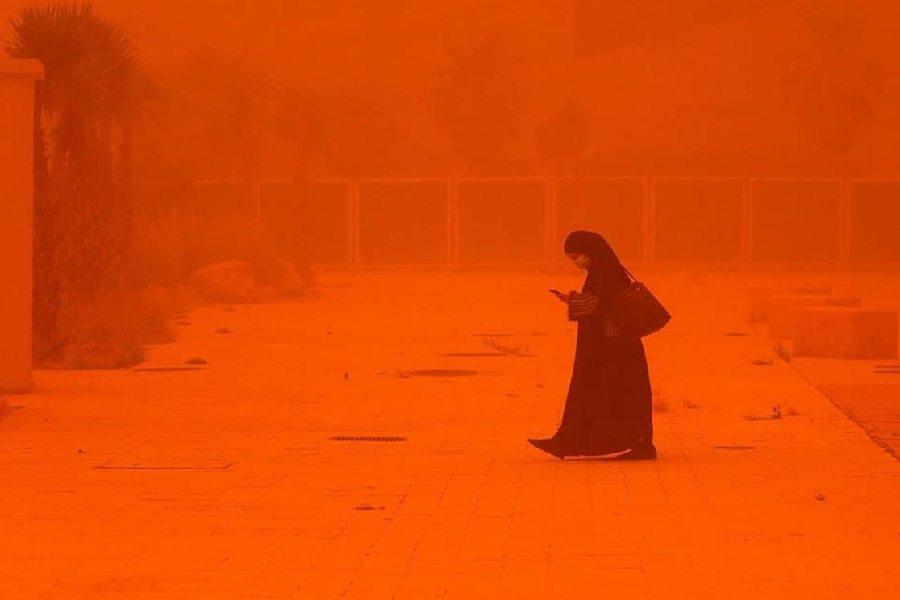Book: BEFORE THE QUEEN FALLS ASLEEP
Author: Huzama Habayeb
Published by: MacLehose
Price: Rs 699
“My father worked as an electrical technician in the maintenance division of the Kuwaiti Health Ministry. His salary did not increase with the same regularity as our increase in numbers, in height and breath, in requests and requirements, in dreams and developing bodies, and in resentments.”
A middle-aged Jihad says this about her father while recounting her life to her daughter, Maleka, in Huzama Habayeb’s novel. This is, however, an imagined recounting to an absent presence — the child who has left for university abroad, but whose childhood bedtime demand (“Tell me your story”) still rings in her ears.
‘Leaving’ is a fraught expression for Jihad, as it has only meant exile for her and her Palestinian family — forced to shift from Kuwait to Jordan to Dubai within a few decades, borne along the tide of the Middle East’s contentious geopolitics. That made them, she says, “hereditary refugees... professionals at living in cities that are not ours, in homelands that belong to others and that spit us out when they tire of us.”
What is most striking about the novel is the way it conveys the materiality of exile through the basic necessities of life: food, clothing, shelter and that thing which makes all of it possible — money. Money talk predominates in the unfolding story of Jihad’s life: whether it is her father, who constantly drew up the family’s expenses against his meagre income and was left with a negative each time; or her uncle, who knew that his future income could only be “little money, precious and hesitant, imperfect blessing and grace that [would] rush to leak out of the wide holes in his life”; or the women, who hid cash and jewelry in their bodies, carrying them in their underwear, sometimes in jars in the kitchen, or between the pages of a book, or a handbag. Every generation tried new tricks to hide its treasures, not always with success.
The lack of money, however, never translates into a lack of food; the joyous moments in the narrative have mostly to do with the family partaking of its pleasure — never in lavish measure, but in the small editions that quotidian life with limited means affords: a grandmother doling out nuts, a father spreading out the dinner cloth for his children at the end of a hard day, having tea under the shade of a tree.
Of the many temporary shelters in which Jihad’s family live out their lives, the unwelcome-ness of her maternal grandmother’s home in Jordan — where, she realises, they are tolerated only if they are “transient guests” — hits the hardest.
Before the Queen Falls Asleep is a mother-daughter story, but at the heart of it is the mother’s relationship with her father which defines her life and life choices. He had wanted a son; and she — the first born — takes on the mantle of that thwarted expectation and has to compensate for it in every possible way: from being named ‘Jihad’ to being anointed “the man of the house” and going out to study (at the University of Kuwait on the strength of “unattainable scores”) and, then, work to fend for her big family. Her love for her married university professor — doomed to failure — was, in a sense, an escape she sought from the ‘clamour’ of this overcrowded family. All the men in her life — her father, lover, and husband — fail her. And it is as a single mother of a daughter, eking out a living in Dubai, that she truly finds herself.
Jihad’s life has a lot in common with her author — they are both second-generation Palestinian refugees raised and educated in Kuwait who become writers. Habayeb’s Palestinian identity informs most of her fiction. In this second novel of hers translated into English by Kay Heikkinen, the frame narrative of telling a tale to a child who has left the nest to study abroad expands the story of displacement into the future — with the hope of agency. While Jihad’s father was forcefully exiled from Palestine after the Nakba of 1948, her daughter chooses to migrate to Britain from the UAE in search of her future.
It would be interesting to find out about Maleka’s experience as an adult in the homeland of her choice.











